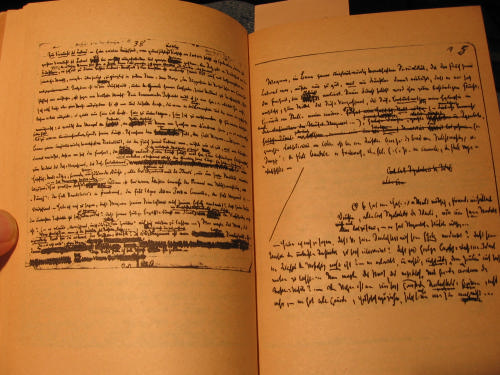Art and nothing but art! It is the great means of making life possible, the great seduction to life, the great stimulant of life.
The Will to Power by Nietzsche.
In Beyond Good and Evil Nietzsche gave a neat description of his view of man as the unification of the two poles of creature and creator (Nietzsche, 1973, p.155). This complemented the twin tendencies of his writings to emphasize, on the one hand, the instinctual, natural side of the human animal forced to survive in a cruel and meaningless world and, on the other hand, to give overwhelming value to the artistic side of man as that which could forge meaning out of such a chaotic experience. Nietzsche’s originality was to see these poles, creature and creator, as intertwined with one another rather than in opposition. While he inherited from the German Romantic tradition the attitude that great art offers a moment of insight into existence, he forcefully rejected any notion that this insight could be a release from life, or a transcendental intuition. He laid emphasis instead on creative existence and saw the artist as the antidote to the ascetic ideal of religion and metaphysics. It is clear that certain Modernist tendencies, notably German Expressionism, derived their emphasis on immediacy and superabundance of vitality from Nietzsche’s highly charged vocabulary, examples of which will discussed below.
This has led to the popular conception of the Nietzschean artist as a natural force answerable only to himself, a figure of physical power and spontaneous energy.

Edited text from the Will of Power by Nietzsche
Beyond the bombastic image of artist as superman, however, there is real subtlety in Nietzsche’s account of creative activity which engages with aesthetic theories reaching back to Plato and Aristotle. He has also had a profound influence on later thinkers, such as Freud, Heidegger and Derrida. For in his description of the artist Nietzsche managed to combine two elements which are at first glance incompatible: a physiological account of the creative body and a concept of art as that which gives meaning to existence. If the making of art is seen as a matter of physiology and the by-product of the nervous system or some other corporeal process, how can it create value out of itself or determine the standards by which we can live our lives? The answer will be found in the distance Nietzsche has from any mechanistic or biologically deterministic notion of physiology.The physical is for him always something already psychological and typifiedin the activity of the artist.
Passage from Chapter 15 Nietzsche and the Artist by Michael White
A Companion to Art Theory Book by Blackwell Publishing
Editor(s): Paul Smith, Carolyn Wilde
Print ISBN: 9780631207627

Recent Comments
pete says,
thank you very much this was very helpfulH M Yamada says,
There is something dire, dangerous and mysteriously compelling about these ...
Robert Horvitz says,
Belated thanks for citing my work! I have a newer ...
article/about says,
Berber as well as Arab nomads took their caravans of ...
Betty Wood says,
Sometimes when I create something beautiful I feel like someone ...